About us
At Suburban TMJ & Sleep Center, our mission is to improve the health, happiness, and quality of life for every patient through compassionate care and advanced, non-surgical solutions.
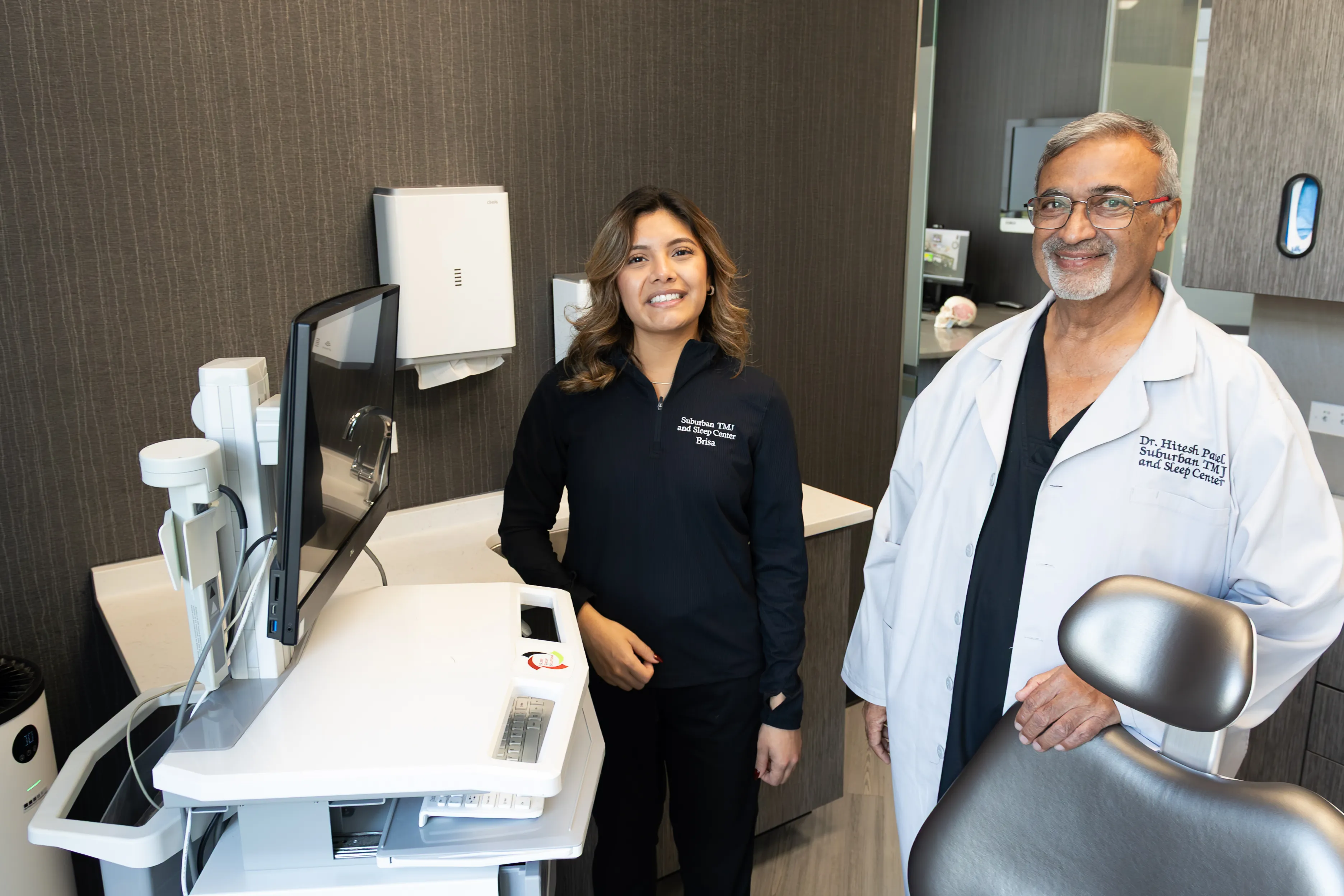
Care That Puts You First
Living with TMJ pain or sleep apnea can feel overwhelming, especially when you’ve been told for years that your symptoms are “normal.” At our practice, we take a different approach. We listen to your story, validate your concerns, and provide personalized treatment that gets to the root of the problem. With decades of specialty experience and a commitment to using advanced technology, our team is here to bring you relief, restore your confidence, and help you get back to living life without pain.
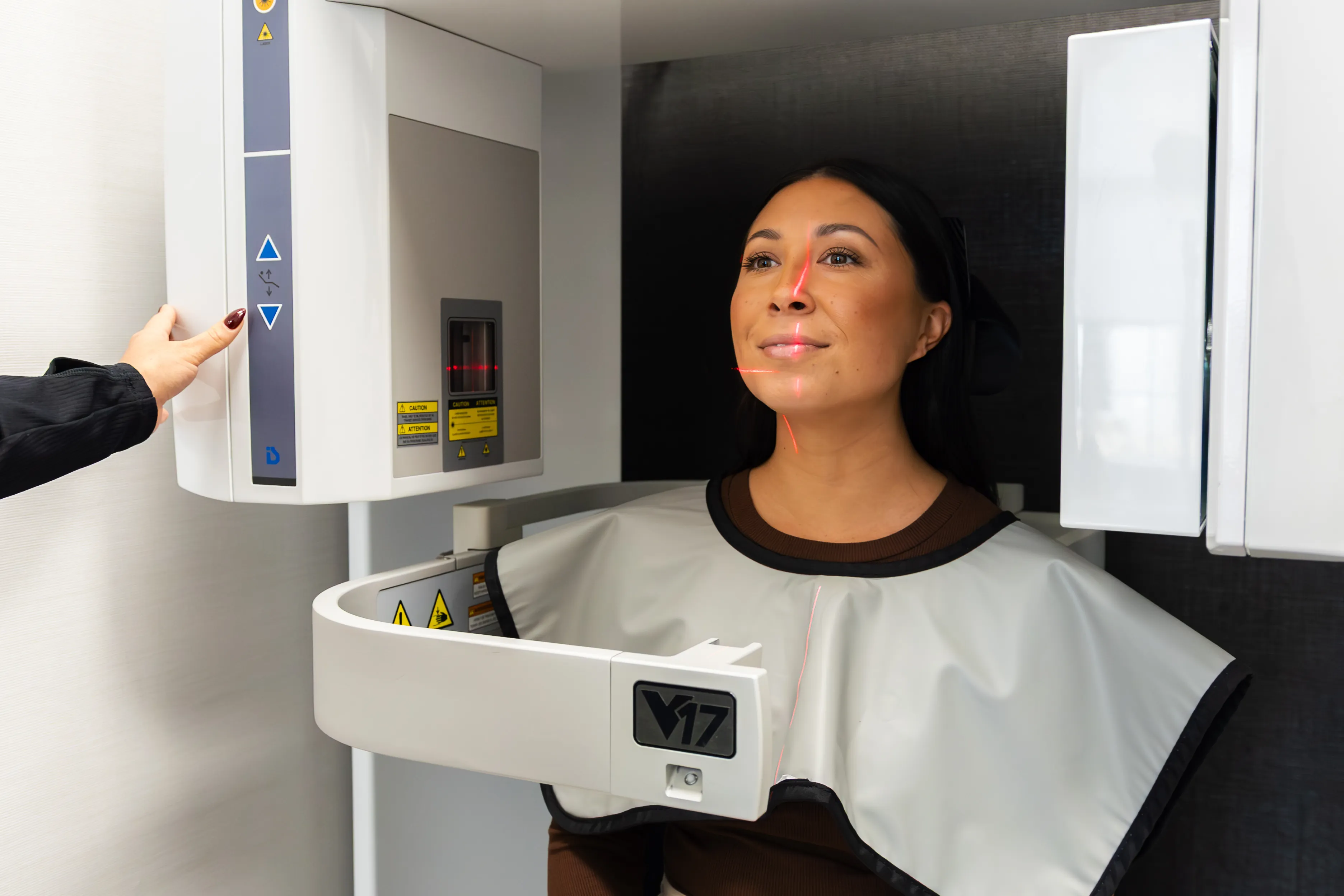
Dr. Hitesh Patel
Dr. Hitesh Patel has dedicated his career to helping patients find relief from TMJ disorders, chronic pain, and sleep apnea. His path began at Xavier University in Cincinnati, where he completed his undergraduate studies, followed by Loyola Dental School in Chicago, where he graduated at the top of his class.
Over the years, Dr. Patel has pursued extensive post-graduate education in pain management and sleep disorders, earning numerous credentials that place him among an elite group of experts nationwide.
Dr. Patel has extensive expertise in non-surgical approaches to TMJ dysfunction, neuromuscular problems, chronic pain, and mild sleep apnea. His advanced training allows him to utilize sought-after diagnostic tools and therapies—including custom oral appliances, laser and red light therapy, PRF injections, and more—to create effective, personalized treatment plans.
Patients travel from across the United States and even internationally to seek out Dr. Patel’s care, thanks to his reputation for achieving results when others could not. Over the course of his career, he has treated more than 5,000 patients non-surgically.
Above all, Dr. Patel values the trust of his patients. Known for his empathy and thoroughness, he strives to ensure that every patient feels heard, supported, and confident in their treatment journey.
• Undergraduate studies at Xavier University, Cincinnati
• Doctor of Dental Surgery (DDS), Loyola Dental School, Chicago — graduated at the top of his class
• Extensive post-graduate training in Pain Management and Sleep Disorders
• Fellow, International College of Craniomandibular Orthopedics (FICCMO)
• Fellow, International Congress of Oral Implantologists (FICOI)
• Fellow, Academy of Dentistry International (FADI)
• Fellow, American College of Dentists (FACD)
• Fellow, International College of Dentists (FICD)

Education & Advocacy
Dr. Patel is committed to raising awareness about TMJ disorders and sleep apnea, and helping patients recognize their symptoms. He authored SOS TMJ Rescue and Unlocking Sleep—free eBooks designed to educate and empower those seeking answers.
Don’t be deceived; your symptoms are real!
Your first visit
From the moment you walk into Suburban TMJ & Sleep Center, you’ll feel the difference. Our team takes time to get to know you, listen to your concerns, and explain each step of the process. During your first visit, you’ll receive imaging, a thorough exam, and a personalized consultation with Dr. Patel. If you’re ready, treatment can often begin the same day.
Bring any referral notes or medical records from your dentist, ENT, or physician.
Be prepared to discuss your symptoms in detail, including headaches, jaw pain, or sleep issues.
Ask questions—our team is here to explain your options and make sure you feel comfortable moving forward.
.webp)
What Sets Our Practice Apart
We aren’t a corporate “center.” We’re a boutique, doctor-led practice focused exclusively on TMJ and sleep apnea. Patients choose us because of the personalized attention, empathetic approach, and proven results they receive.
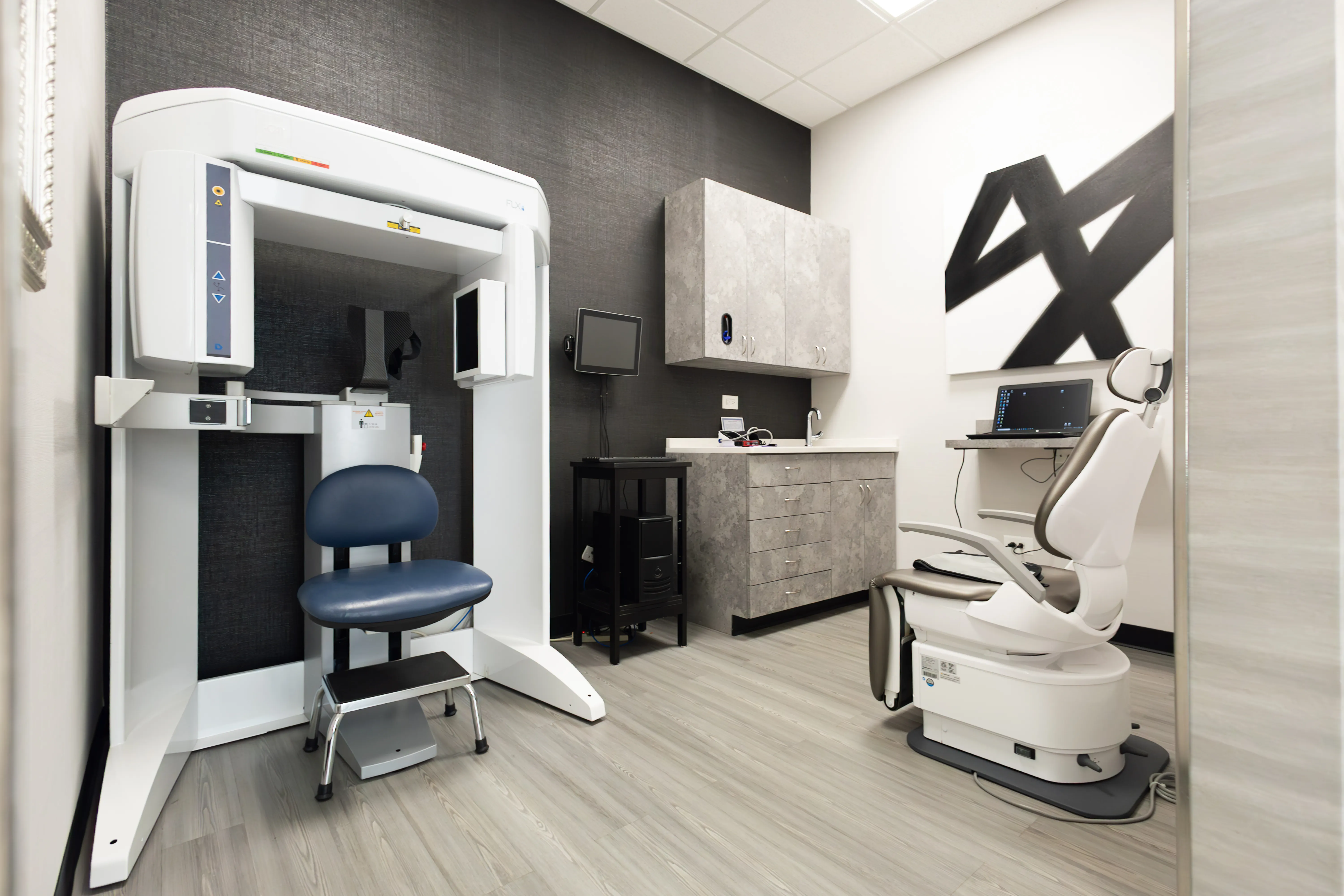
Doctor-Centered Care
Patients come to see Dr. Patel directly—not a revolving door of providers.

Boutique Experience
We intentionally keep our practice small and specialized, so you always feel heard and cared for.

Proven Results
With over 5,000 patients treated, our track record speaks for itself.

Advanced Technology for Better Outcomes

CBCT & 3D Imaging
Detailed, high-resolution scans help us pinpoint the root cause of TMJ and sleep apnea issues.
.webp)
Pharyngometer
This diagnostic tool measures airway health to ensure accurate treatment planning for sleep apnea.
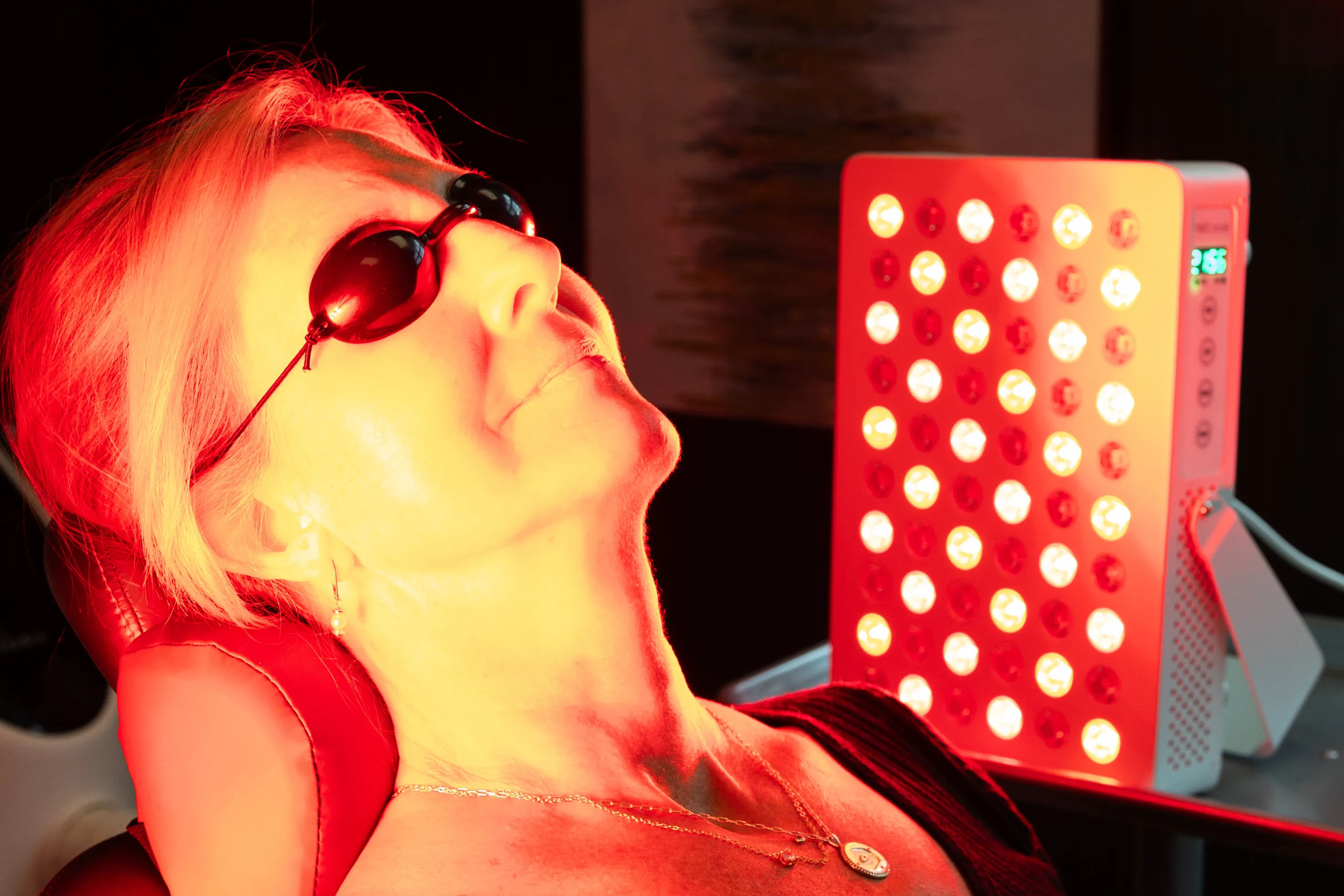
Summus Medical Laser & Red Light Therapy
Non-invasive light therapies reduce pain, promote healing, and support long-term comfort.

TENS Therapy
Gentle electrical stimulation relieves muscle tension and provides drug-free pain relief.
At Suburban TMJ & Sleep Center, we believe our responsibility goes beyond patient care. We’re proud to support local organizations, charitable causes, and awareness campaigns that make a real difference in people’s lives. Whether it’s fundraising for research or volunteering our time, giving back is part of who we are.
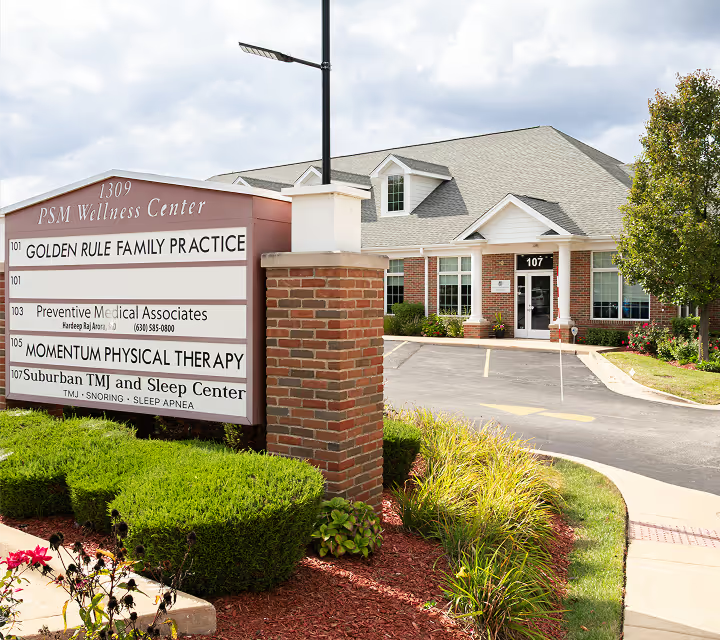

On September 23, 2023, our practice proudly sponsored “Laugh Your Face Off”, a comedy fundraiser benefiting the Facial Pain Research Foundation. Since 2015, the foundation has raised over $2.6 million to fund research for a cure for trigeminal neuralgia and related neuropathic facial pain. The event was created by Amy and Pat Tomasulo after Amy’s diagnosis in 2001, and we’re honored to stand behind their mission to fight back.
Our team recently volunteered at Feed My Starving Children in Aurora, where we packed nutritious meals for children in need worldwide. We also donated funds to provide a year’s worth of meals for a classroom of 21 children. It was a hands-on way to live our values and extend our care beyond the office.
We’re proud that Dr. Patel was recently featured in Naperville Magazine as a trusted expert in TMJ care. With over 5,000 patients treated non-surgically in his 35+ years of practice, his work continues to bring lasting relief and vitality to our community.











